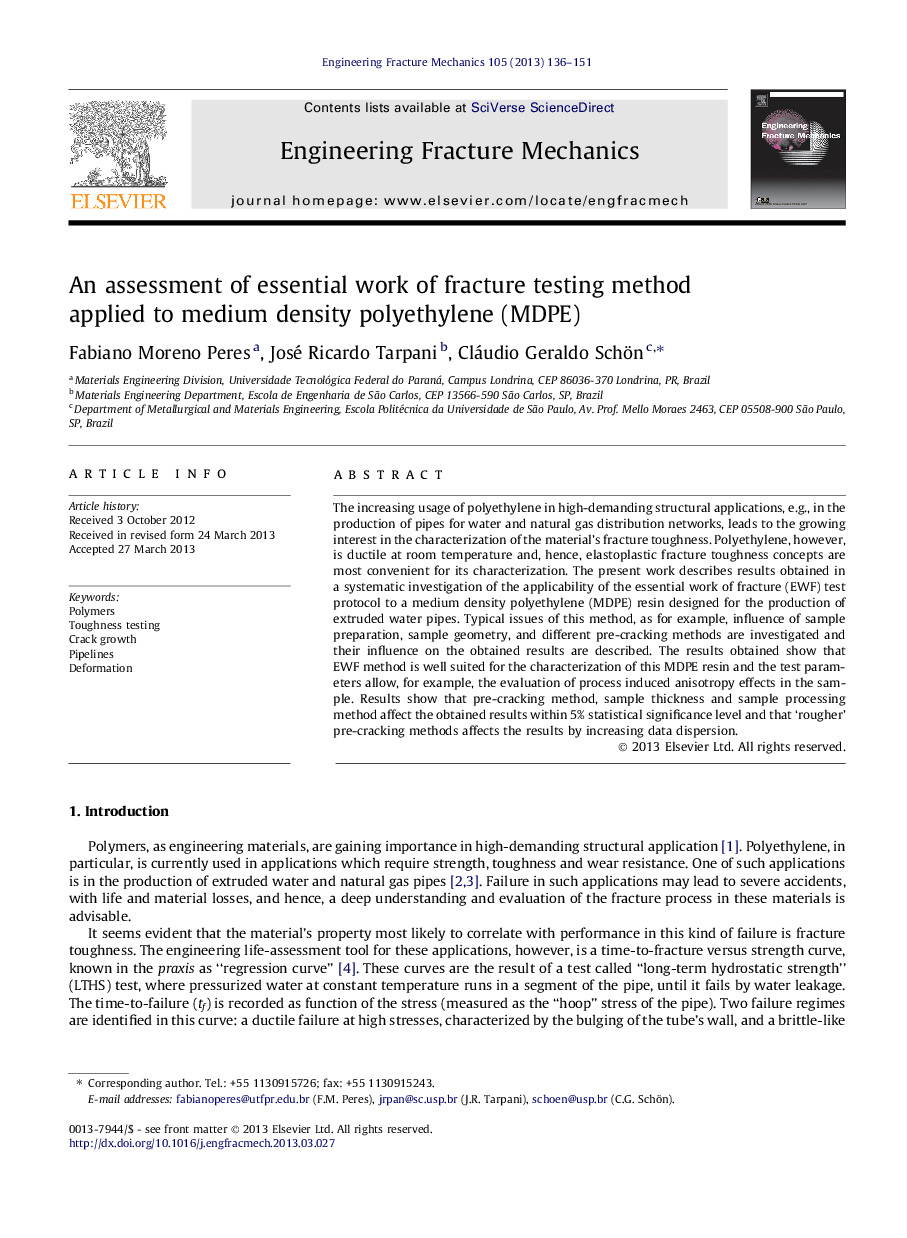| Article ID | Journal | Published Year | Pages | File Type |
|---|---|---|---|---|
| 770800 | Engineering Fracture Mechanics | 2013 | 16 Pages |
•A systematic investigation of the effects of different test parameters on EWF results is performed.•Precracking, specimen width and processing state of polyethylene influence the results of EWF tests.•EWF can be successfully used to characterize process-induced anisotropy in polyethylene.•EWF is reproducible provided the test parameters as, precracking method and specimen width are fixed.
The increasing usage of polyethylene in high-demanding structural applications, e.g., in the production of pipes for water and natural gas distribution networks, leads to the growing interest in the characterization of the material’s fracture toughness. Polyethylene, however, is ductile at room temperature and, hence, elastoplastic fracture toughness concepts are most convenient for its characterization. The present work describes results obtained in a systematic investigation of the applicability of the essential work of fracture (EWF) test protocol to a medium density polyethylene (MDPE) resin designed for the production of extruded water pipes. Typical issues of this method, as for example, influence of sample preparation, sample geometry, and different pre-cracking methods are investigated and their influence on the obtained results are described. The results obtained show that EWF method is well suited for the characterization of this MDPE resin and the test parameters allow, for example, the evaluation of process induced anisotropy effects in the sample. Results show that pre-cracking method, sample thickness and sample processing method affect the obtained results within 5% statistical significance level and that ‘rougher’ pre-cracking methods affects the results by increasing data dispersion.
